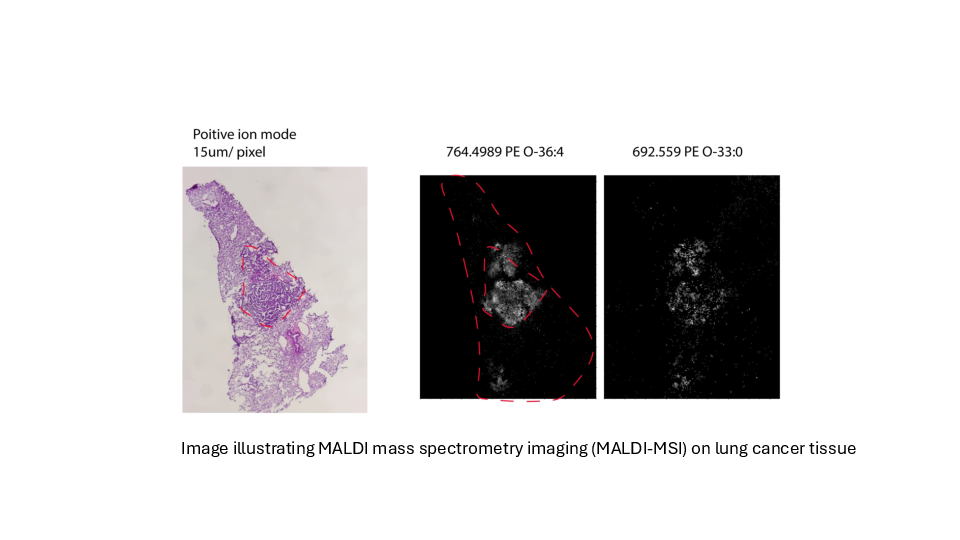Forschungsprojekte
Determing tumor lipid heterogeneity in lung cancer
Konstantinidou group PD. Dr. Georgia Konstantinidou, PhD
Lung cancer is the most common cause of cancer-related deaths worldwide. Tumor-associated mutations of KRAS occur in approximately 30% of non-small cell lung cancer, the most common form of lung cancer.
KRAS mutations are associated with aggressive, metastatic, and treatment-resistant cancers in both humans and mouse models. Mutant KRAS drives a complex network of lipid metabolic rearrangements to help cancer cells adapt to hypoxia and ensure their survival.
We plan to determine the transcriptomic and lipidomic changes that occur in lung tumors during cancer progression and therapy resistance and assess their functional significance, accounting for tumor-to-tumor heterogeneity while preserving the spatial organization of cancer cell populations within the tumor microenvironment.
Targeting cellular metabolism to augment cancer therapy
Marti Group PD Dr. med. Thomas Marti
The aim of this project is to investigate how the nucleotide/lactate metabolism and the DNA damage response machinery are associated with the tumor initiating capacity, the chemotherapy response, and the metastatic capacity of lung and mesothelioma cancer stem cells. In addition, we are exploiting treatment induced cellular adaptations as novel targets for cancer therapy.
Unravelling therapy resistance mechanisms for precision medicine in lung cancer and mesothelioma
Peng group Prof. Ren-Wang Peng
Lung cancer and malignant pleural mesothelioma (MPM) are major thoracic tumors characterized by high morbidity and mortality, as well as high heterogeneity and resistance to therapy.
There is an unmet need for a better understanding of the resistance mechanisms, the identification of novel targets and strategies to prevent or overcome therapeutic resistance, and the rational development of precision medicine approaches for personalized disease management to improve clinical outcomes for patients with thoracic tumors.



